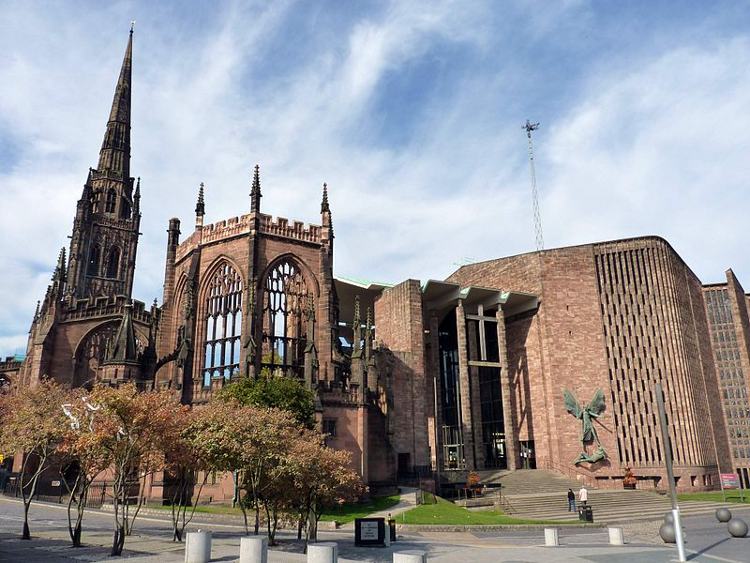Everyone from the New York Times to the Chronicle of Higher Education, in addition to local news outlets, have picked up the story of Bob Jones University dropping the G.R.A.C.E. investigation into how the University responds to claims of abuse.
This article from gives an even-handed overview of the inciting incidents, the ensuing PR debacle for BJU, and the reasons alumni are so angry:
Why Did Bob Jones University Terminate Its Sexual Abuse Investigation? | Political Research Associates.
[Update 2/15/14: BJU announced a meeting with GRACE next week to decide whether they will restart the investigation.]
In short: Alumni have realized, now that the Internet allows people to compare their stories, that they aren’t alone, that most of the counseling offered to students when they were at BJU has been extremely poor when dealing with victims of sexual abuse.
Many of these cases involve students who brought tales of past abuse to the dorm staff, only to have their stories doubted, blamed on their own actions (what a girl was wearing, for example), chalked up to bitterness and a lack of forgiveness, and swept aside by the excuse, “We don’t want to dishonor the body of Christ by bringing an accusation against your [pastor / youth leader / parent / teacher]. Your responsibility before God is to forgive your abuser and move on, not to report this to the police.”
I wish I were making this up, but I’ve been reading these stories from alumni for almost a decade now. A vibrant discussion form for BJU alumni used to exist on Facebook (before their new Groups pages killed the forum option) where many “survivors” met one another online and shared these stories for the first time. I wish I could say, this is not as bad as it sounds… but actually, it’s worse.
Mandatory reporting laws have regularly been ignored, and an institutional culture of handling everything internally, and blaming girls for unwanted sexual attention, continues well into recent years. Fifteen years after college, I’m still “processing” my thoughts on life in the girls’ dorm and my work as a hall leader. I saw a rough underbelly of abusive practice that I didn’t have the experience or maturity or even education to recognize at the time, but the patterns are clear to me now. Maybe sometime I’ll unpack that whole box of memories, but I’ll move on for now.
(The whole question of eschewing psychological research as Satanic in favor of practicing nouthetic counseling is its own huge topic. Others have taken up the discussion; if you have no idea what I’m talking about, here’s a post from The Wartburg Watch that I can corroborate – everything he mentions, I heard in counseling class at BJU.)
Returning to the current BJU/GRACE controversy – The conversation is muddy. “Camps” emerge rapidly and their arguments are stereotyped by opposing sides, making straw man interaction all the more tempting. Extremism begins to drown out the conversation on both sides, preventing people in the middle from taking the whole discussion seriously.
It’s easy for the critics of BJU to condemn everyone there as depraved and abusive and bigoted legalists, yet this monolithic condemnation doesn’t match the experience of many of us who honestly value the good that came out of our Bob Jones years. (Probably need to write a post on that too.) Or to borrow the Kuyperian perspective, the antithesis runs through and not around any human institution, including Bob Jones University. There are good people and bad. The battle for sanctification in this life produces awkward mixtures of failure and grace.
Likewise, the defenders of BJU should be faulted for ignoring mounting and overwhelming evidence that we cannot simply let BJU sort this out in their own time, or blame GRACE as if the investigator is the problem. (It isn’t.) Whether the critics are “bitter” toward BJU or not is irrelevant. Abuse has been tolerated, covered up, and mishandled by the administration for decades. The University has a deep racist history – even if you disagree that a particular action was motivated by racism, you can’t overlook the whole arc.
The middle has dropped out of the conversation about BJU and abuse.

When the discussion allows you to be a member only of the extremes, I think you get two things: 1) To an extent, clarity of the opposing viewpoints; but also 2) fog of war, which prevents us from seeing underlying causes as clearly as we might.
The question of abuse – how to define it, how to recognize it, how to ensure that victims and those accused of inflicting abuse are both given a fair hearing – has exploded into popular consciousness. Whether it’s the nightmare of priestly abuse in the Catholic church (helloooo….. maybe celibacy could go?) or Protestant preachers caught doing the dirty with a kid in the youth group, everyone seems to know now that powerful Christians sometimes use that power to abuse the people under their care. It’s shameful, and it needs to stop.
The culture of protecting the accused lies at the heart of the problem, but I’d like to point a finger at one underlying theological error that drives this behavior:
Defining government as “that which is evil.”
Conservative political theory has been wedded to Evangelical theology pretty tightly in the past 30 years or so, at least in my Evangelical circles. I think desegregation and the fight for racial equality galvanized some sectors of Christianity (not just in the South) to link their personal, cultural perspectives on American issues to their theological perspectives. Fundamentalism certainly shifted into a hardline separatism during the 1960s and 70s as the wider culture looked less and less like Mayberry, a mythical vision of America that looked enough like the way Americans tend to define “Christian living” to fool everyone into thinking they were the same thing.
Throw in the disillusionment of the Vietnam War, the Nixon tapes, the stagflation of the 70s, the decline of American manufacturing, Clinton’s inability to keep his fly zipped, and W’s foolish Iraq war — it’s not like our government has had a great track record over my lifetime for sure. Oh, and now the NSA spying scandal, the use of drones to kill terrorists without any kind of legal trial, Guantanamo Bay, and a completely inept Congress, and I’d say I’ve dug myself a pretty deep hole for trying to argue that government isn’t evil.
Looks like this needs to be a separate post. Stay tuned.
If you’re willing to walk just a little further with me on the idea, here is the point I want to make:
Because it’s cool now in conservative circles to bash government, churches / Christian organizations believe with all their hearts that the government isn’t good enough to do its job.
I’d argue that “it’s job” is to bear the sword (Rom 13) to ensure justice against evildoers. I also think the Old Testament firmly defines a righteous king as one who cares for the poor, defends the oppressed and weak, and defends justice, especially for those who do not have a voice.
We can argue about all other kinds of things the government seems to want to do (Obamacare, taxing, etc) but let me focus in on one major idea:
The institution God created to dispense justice is the State. That doesn’t mean other institutions (families, churches, schools, businesses) get to be unjust. It means that the state is given the responsibility to make sure injustice gets smashed.
When the Church absorbs the responsibility for determining justice and wrong-doing into its own mission, we get certain problems. Churches who stop trusting the government to do its job take justice into their own hands. So when a kid accuses her youth leader or parent of sexual abuse, pastors feel like it’s ok for them to “make the call” whether this is a “real” case of abuse.
I get it. I do. As a teacher, I lived in a world where word-against-word accusations could end someone’s career, often unfairly. Make a teenager unhappy and you find yourself facing a series of lies about your actions, your character, your motives It was a real risk and my only defenses were common sense and a lot of prayer for protection from El-Roi, the God Who Sees.
I’m not pretending that our state agencies get things right. You can pile up examples of child protective services bringing cases against parents because, for instance, mom swatted the toddler on his butt during a grocery store tantrum.
I get it.
But God didn’t establish the spheres of human institutions on a whim, and I don’t think you can succeed in arguing that American government is so broken that we have no hope of justice. Church courts do not supersede legal rulings. The DSS workers I know in South Carolina work very hard to protect children from horrific abuse. They don’t relish pulling children into the state’s hands. They see first-hand how much damage it does to a child…. but abuse is a serious charge and must be investigated seriously.
This is why pastors and teachers (and others) are required to obey mandatory reporting laws. Biblically, all of us are responsible to see that the weak and voiceless are not smashed by the strong, and we are bound to obey the government we live under unless it violates biblical mandate.
The real problem with trying to handle abuse accusations in-house is that neither the victim nor the accused will actually get justice. (I realize that the legal system sucks at sorting out these cases too — Dylan Farrow’s renewed accusations of sexual abuse by Woody Allen make this point well). [Excellent post on this point: Why Young Sexual Assault Victims Tell Incoherent Stories – Atlantic Mobile.]
But the Church cannot marshall the resources of the institution given the biblical mandate to uphold justice — the forensics, the investigators, the laws of evidence and testimony established within our legal system to look at questions of abuse and bring things into the light. Further, the Church can never impose the level of penalty that justice requires for a wrongdoer. God forgives and Grace heals, but sin carries penalty.
Alumni were happy because the G.R.A.C.E. investigation was going to bring light to the dark corners of BJU policy and administrative action. Realistically, that could result in civil and criminal charges. But when sin has been committed, if you’re going to argue that you follow a biblical theology, you can’t step back from the civil consequences of immoral actions.
We Protestants have no business smirking when another priest abuse scandal hits the TV news. Our own churches are awash in buried accusations of sexual impropriety, domestic violence, emotional abuse, educational neglect, and other crimes.
The PCA [Presbyterian Church in America], the denomination to which my church belongs, refused last summer to take up a resolution urging churches to implement wise policies within child care programs and church events to reduce the chances of abuse.
Let’s get back to the basics. Government isn’t evil; people are evil. God instituted the State to protect people from one another, to ensure justice, to penalize evil. Christians and people in the church can be evil. Outside eyes are good. Accountability is good. Following the law, even if you don’t like it, is biblical. Hurting children is bad. Withholding justice from both victims and those accused is bad. Trying to keep accusations of abuse “in the family” by handling a matter internally is bad – whether you’re a church or a Christian college.




Got a comment?